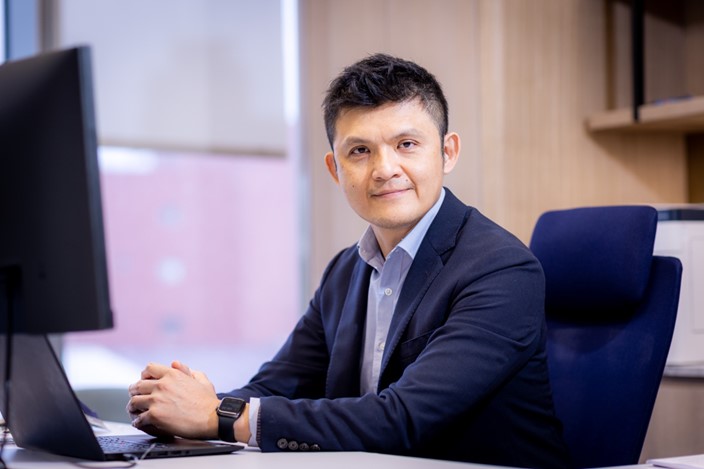Cell Therapy as a Pillar of Future Therapeutics, an Interview with Alex Huang, Vice President and Head of Cell Therapy at BeiGene
The recent progress in cell and gene therapies, particularly that of autologous CAR-T therapy, has brought revolutionary advances to medicine. However, due to the variability of the donor source and manufacturing processes, these new treatments come with financial limitations and safety concerns. Global experts are seeking solutions to mitigate these problems.
GeneOnline had the opportunity to interview Dr. Alex Shih-Min Huang from BeiGene, who joined the company in April 2021 as the Vice President, Head of Cell Therapy. He is an experienced leader with intimate knowledge of drug discovery and development. Before joining BeiGene, Dr. Huang had more than 20 years of industrial experience at Novartis, Sanofi, Genentech, BMS, and AbbVie. During those years, he led teams in advanced programs through R&D milestones ranging from target ID/validation, early/late-stage drug discovery, IND/Ph1/2/3, to life cycle management. His drug discovery and development experience encompass diverse therapeutic modalities, including cell therapy, small molecules, biologics, and targets a broad range of biological space.
Cell Therapy’s Role in Novel Cancer Treatments
Cell and gene therapy has shed light on a new horizon of breakthrough therapies that could fulfill current unmet medical needs. To contribute to this global endeavor, BeiGene announced a strategic global alliance with Shoreline Biosciences in 2021 to jointly develop and commercialize genetically engineered natural killer (NK) cell therapy. This collaboration will help establish cell therapies with designated therapeutic targets. “Cell therapy inevitably will become another pillar of therapeutics in the future, especially for oncology.” Huang said.
Huang explained that the current autologous CAR-T therapies have brought tremendous value to cancer patients. Despite the advantages, the variability between the donor cells and the quality of the sample obtained from patients poses several issues to the subsequent manufacturing processes and the final product. The exorbitant costs also present problems, which is an area BeiGene would like to work on to help patients. To reduce the cost, searching for a single unified source of starting material may be beneficial.
With hundreds of companies looking to find better solutions, allogeneic cell therapy is a growing area of interest. In combination with the maturation of the induced pluripotent stem cells (iPSC) technology, truly affordable and off-the-shelf cell therapies might be within reach. However, Huang believes that there are still many new venues to explore. BeiGene follows its philosophy to offer innovative, accessible, and affordable medicines for patients worldwide, and therefore are open to new ideas. They will allocate resources to any approach that can accomplish that goal.
“We look to expand our pipeline of transformative medicines from small molecule and antibody therapeutics to off-the-shelf cell therapies,” Huang said.
When discussing the impact of new technologies on cell therapy, Huang noted that CRISPR technology, creative vector designs, novel mRNA delivery, and gene editing platforms could potentially benefit cell therapy if applied appropriately. All of these new techniques would profoundly impact the evolution of cell and gene therapy. Huang believes that it is an exciting time for cell therapy, and the field will come to a point where those tools will probably be combined to create synergistic interactions.
Building a pipeline of innovative Cancer Therapies
There are new advancements in drug development, and BeiGene has been an active player. From molecularly targeted agents to immuno-oncology therapeutics and cell therapies, BeiGene is offering more novel treatment options. During the interview, Huang mentioned that BeiGene has a growing R&D and medical team of approximately 3,300 colleagues dedicated to advancing more than 100 clinical trials involving 16,000 subjects. The expansive portfolio is directed predominantly by the internal experts supporting clinical trials in more than 45 countries and regions.
As examples, Huang mentioned a few medicines in the current advanced pipeline, such as BRUKINSA, a small molecule inhibitor of Bruton’s tyrosine kinase (BTK), which has a remarkable approval record in over 50 countries and regions. Tislelizumab, a humanized IgG4 anti-PD-1 monoclonal antibody designed to minimize binding to FcγR on macrophages. Lastly, Ociperlimab, an investigational humanized monoclonal antibody designed to bind to TIGIT with high specificity and affinity. Huang emphasized, “From discovering new therapies to scaling our commercial reach, we are working to close the health equity gap by expanding access to patients globally.”

Strategic Collaborations to Accelerate Novel Therapies
Strategic collaborations with like-minded partners also play a key in BeiGene’s drug development. Huang emphasized that BeiGene is committed to collaborating with academia, biotech, and pharmaceutical companies worldwide to discover and develop innovative products that will bring meaningful treatment to patients. He particularly highlighted the collaboration with Shoreline, with which BeiGene hope to develop cell therapies with designated therapeutic targets quickly and help cancer patients with unmet medical needs. Shoreline has developed a proprietary platform focused on iPSC-derived NK cells and macrophages optimized with precise and rational genetic reprogramming. BeiGene will bring its expertise in clinical development and commercialization.
Other key collaborations included partnering with Novartis in 2021 to develop, manufacture, and commercialize tislelizumab globally (in North America, Japan, and Europe). BeiGene has also collaborated with one of its most prominent partners, Amgen, for commercializing its three oncology products. In July this year, BeiGene signed a collaboration agreement with InnoRNA, an innovative mRNA company. Huang expects that with the help of this company, the two can create synergistic value in all kinds of therapeutic modalities and generate innovative products.
Cell therapy has immense potential to become the pillar of cancer treatments; however, challenges, including cost and variability, need to be overcome. BeiGene has optimized critical components in drug R&D and continuously building efficient international teams with the right partnerships to rapidly bring forth innovative but affordable medicines. We look forward to seeing BeiGene as one of the prominent global contributors in cell therapy arena.









